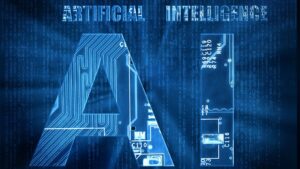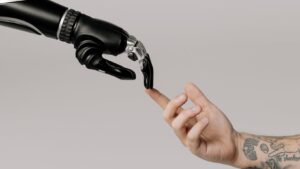Artificial intelligence (AI) is reshaping the landscape of technology and innovation, offering groundbreaking solutions that were once the stuff of science fiction. From self-driving cars to personalized medicine, AI technologies are not just transforming industries; they’re redefining the very way we live and work. As these technologies continue to evolve, they promise even greater shifts in our daily lives and global economies.
Artificial Intelligence Technologies

The journey of artificial intelligence (AI) technologies began in the mid-20th century, marked by early explorations into neural networks and machine learning. This period set the groundwork for the dynamic advancements that would follow. In the 1980s, the introduction of algorithms like backpropagation enabled computers to adjust and improve through experience, mimicking basic learning patterns found in humans.
Transitioning into the 21st century, AI’s capabilities expanded immensely with the development of deep learning and big data analytics. These technologies allowed AI systems to analyze vast amounts of data, making more accurate decisions faster than ever before. Today, AI integrates seamlessly across various sectors, continually evolving and driving innovative solutions in real-world applications. This constant advancement underpins its crucial role in shaping modern technologies and underscores the importance of AI in crafting the future landscape of global industries.
Key Technologies Driving AI Innovation
Machine Learning Algorithms
Machine learning algorithms form the cornerstone of AI innovation, enabling machines to improve their performance over time without direct human intervention. Popular algorithms, such as decision trees, support vector machines, and neural networks, analyze patterns in data to make predictions and decisions.
Neural Networks and Deep Learning

Expanding on basic neural networks, deep learning uses complex architectures like convolutional neural networks (CNNs) and recurrent neural networks (RNNs). These technologies are crucial for tasks that involve image and speech recognition, playing a key role in the development of autonomous vehicles and virtual assistants.
Natural Language Processing (NLP)
NLP allows computers to understand and generate human language. This technology powers chatbots and digital assistants, enhancing user interactions with machines. It also supports real-time translation services, making global communication more accessible.
Robotics and Automation
Robotics integrate AI to perform complex tasks that require precision and adaptability. This technology advances have led to the creation of robotic surgeons and automated manufacturing systems, which increase efficiency and reduce human error in critical operations.
Impact of Artificial Intelligence on Various Industries

Artificial Intelligence (AI) transforms operations and strategies across multiple sectors. In healthcare, AI enhances patient diagnostics and treatment efficacy, helping doctors diagnose diseases such as cancer with higher accuracy through image recognition technologies. Manufacturing benefits from AI through predictive maintenance and streamlined supply chains, which boosts efficiency and reduces operational costs. The finance sector utilizes AI in fraud detection and risk management, adapting to new threats more swiftly. Furthermore, the retail industry leverages AI for customer experience enhancement by personalizing suggestions and optimizing inventory management. Each industry experiences significant efficiency improvements, reflecting AI’s expansive influence.
Ethical Considerations in AI
Ethical considerations are crucial when deploying AI technologies. AI systems, given their influence in decision-making processes across various sectors, must operate under ethical guidelines that prevent harm and ensure fair treatment for all users. For instance, issues of transparency arise when these systems make decisions without human oversight, potentially leading to biases that could harm individuals or groups. AI’s ability to manipulate or create data, if not ethically managed, could lead to privacy infringements and misinformation.
Moreover, recognizing the accountability for decisions made by AI systems remains a complex challenge. Organizations must carefully consider who is responsible if an AI system’s decision results in negative outcomes. This involves creating and enforcing frameworks that hold appropriate parties accountable, ensuring that AI technologies improve lives without compromising ethical standards or societal norms.
Future Trends in Artificial Intelligence Technologies
As AI continues to evolve, its influence across various sectors is undeniable. The forward momentum suggests a future where AI not only enhances existing technologies but also pioneers new forms of interaction and automation. The commitment to ethical AI will play a pivotal role in its development ensuring that advancements benefit humanity universally. As researchers and developers navigate these challenges, the integration of AI in daily life and global industries will likely become more seamless and intuitive. The journey of AI is far from over and its trajectory remains one of the most fascinating elements of modern technology.



